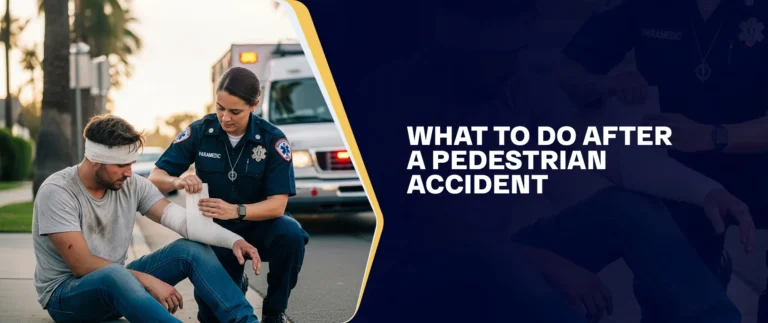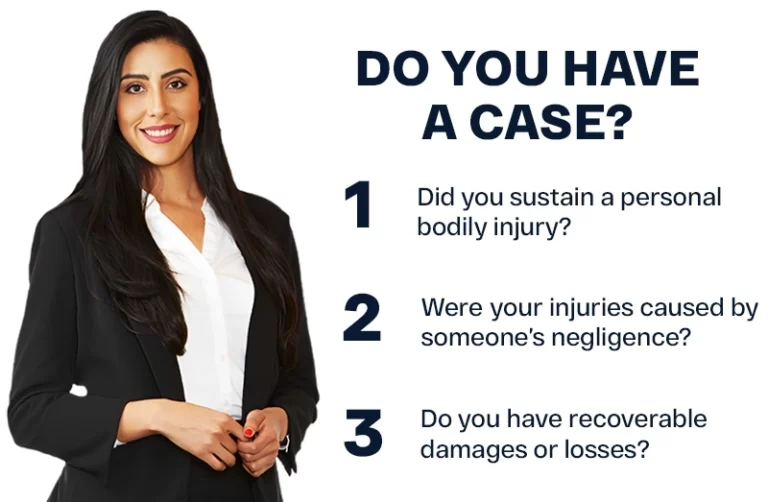Table of Contents
When injured on the job, employees often face challenging questions about their future. They might ask: Who will cover my medical expenses? How long will I be unable to work? Will I be able to recover lost wages?
Workers’ compensation claims are the typical route for on-the-job injuries. However, in some cases, there might be another route they could take: filing a personal injury claim. Both options allow them to pursue compensation for their injuries. What, then, is the difference between the two?
The main difference between a workers’ compensation claim and a personal injury claim is that workers’ compensation is a “no-fault” system where you can claim benefits for work-related injuries regardless of who is at fault. In contrast, a personal injury claim requires proving that someone else’s negligence caused your injury to seek damages, including compensation for pain and suffering, typically not covered under workers’ comp.
Filing A Workers’ Compensation Claim Vs. A Personal Injury Claim
Knowing the types of compensation available after an on-the-job injury is important to understand the support you can receive. There are two primary avenues for seeking financial recovery, each with its own benefits, rules, and limitations.
Before filing a claim, understanding these options and how they apply to your situation is important. Here’s a straightforward comparison of workers’ compensation and personal injury claims to help guide your decision:
File a workers’ compensation claim if:
- You are injured at work. Your employer’s insurance covers your injury while performing work-related tasks. Workers’ compensation provides medical benefits, disability payments, and vocational rehabilitation without requiring proof of employer negligence. While it offers essential benefits quickly, it is limited to set amounts and does not cover pain and suffering.
File a personal injury claim if:
- A third party is involved. Another party, such as a negligent driver or defective product manufacturer, caused your injury.
- Your injury resulted from your employer’s intentional actions or gross negligence. A personal injury lawsuit may provide greater damages, including punitive damages.
Our competent injury attorneys can help you make informed decisions and assist in pursuing the monetary recovery available under the law. A knowledgeable accident lawyer can help you understand your rights, evaluate your case, and guide you through your options. They can provide tailored guidance based on the specifics of your workplace accident and explain different avenues for compensation, including filing a lawsuit against the parties that caused your injuries.
Workers’ Comp Vs. Personal Injury: Key Differences
You might be eligible for compensation if you’ve sustained a work injury. The process starts with identifying the correct type of claim to pursue.
Determine whether you should file a workers’ compensation claim, a personal injury claim, or both. Each option has its own set of deadlines, legal requirements, and opportunities for obtaining remuneration. So, how do you decide which type of claim, or claims, to file after a workplace injury?
Eligibility For Workers’ Compensation Vs. Personal Injury Claims
In California, only those classified as “employees” rather than “independent contractors” qualify for workers’ compensation benefits. The employer’s insurance provides workers’ compensation benefits for injured employees. California’s workers’ compensation system typically does not cover independent contractors.
If you are an employee whose injury occurred at work, you cannot file a personal injury claim against your employer. Generally, employees can only pursue compensation through workers’ compensation, with some exceptions. For instance, you may still be able to pursue a personal injury claim against negligent third parties, such as a contractor, property owner, or driver.
Due to the challenges of determining eligibility and the types of claims you can pursue, it’s important to consult workers’ compensation attorneys. Your lawyer can clarify whether you qualify as an employee or independent contractor and guide you through the legal actions you can take to pursue compensation.
Grounds For Workers’ Compensation Vs. Personal Injury Claims
Like most states, California’s workers’ compensation system is based on the principle of no fault. This setup means you can receive benefits for your injury even if no negligence is involved. The only requirement is that your injury occurred while at work or performing job duties. Here are some examples:
- You slip and fall in the office and sustain a back injury.
- You develop carpal tunnel syndrome from repetitive typing as part of your job.
- You get injured while lifting heavy boxes during your work duties, leading to a spinal cord injury.
On the other hand, personal injury claims require proof of fault. To succeed, you must show that a person’s negligence was the direct cause of your workplace accident. For example:
- Due to improperly secured scaffolding by a subcontractor, a construction accident leaves a worker injured. The worker must demonstrate that the subcontractor’s failure to follow safety protocols caused the scaffolding accident.
- A factory worker injures their hand when a machine malfunctions due to a faulty safety switch. To hold the manufacturer liable, the worker must prove that the defective design or poor equipment maintenance caused the accident.
- A chemical plant’s lack of proper ventilation exposes workers to toxic fumes. If an employee becomes ill due to prolonged chemical exposure, they must demonstrate that the employer failed to provide a safe work environment.
This route might also be viable if the employer doesn’t have workers’ compensation insurance. Consult a personal injury lawyer to find out if you can file a personal injury lawsuit.
Compensation For Workers’ Comp Vs. Personal Injury Cases
Both workers’ compensation and personal injury actions offer different benefits and have their advantages and limitations. Damages available through these two separate claims are as follows:
Workers’ Compensation
If you work for a private company in California, your employer is legally required to provide workers’ compensation coverage for all employees. Almost all job-related injuries fall under this coverage, except for federal employees, who fall under a separate system.
Benefits typically include:
- Medical Bills — Coverage for necessary medical expenses related to the injury.
- Temporary Disability — Temporary disability (TD) benefits typically cover two-thirds of your pre-tax wages lost while recovering from a work injury. However, the law sets limits on the minimum and maximum amount you can receive weekly.
- Permanent Disability — Biweekly payment or lump sum settlement, based on the extent of injury or disfigurement, your age when injured, your occupation, and other factors.
- Vocational Rehabilitation — Funding for retraining if your injuries prevent you from returning to your previous job.
- Death Benefits — Support for surviving family members in the event of a work-related fatality.
Although workers’ compensation provides these essential benefits, it has limitations. Employees don’t need to prove negligence, simplifying the process, but the benefits may not fully cover other economic impacts. The compensation also does not cover certain damages, such as pain and suffering.
Personal Injury Lawsuit
So, what damages can you claim in personal injury cases? You can pursue a broader range of compensation. If successful, you could recover:
- Full Wages — Compensation for lost wages beyond the typical percentage limitations of workers’ compensation.
- Property Damage — Reimbursement for the costs of repairing or replacing damaged property.
- Medical Expenses — Coverage for all past, present, and future medical bills.
- Pain and Suffering — Pain and suffering settlements can be substantial since these damages have no caps.
While personal injury lawsuits offer the potential for higher compensation, they’re not always a possible option after a workplace accident. Choose a California personal injury lawyer who can assess whether you have a viable personal injury case.
Deadlines For Filing A Workers’ Comp Claim Vs. Personal Injury Claim
The California Department of Industrial Relations requires employees to notify their employer of any work-related injury within 30 days. Failing to do so could jeopardize your ability to receive benefits. After informing your employer, you must file a formal workers’ compensation claim within one year of the date of the injury. These deadlines are strict, and missing them can result in losing your right to claim benefits.
In contrast, personal injury claims typically allow more time to file, with a statute of limitations of two years in most cases. Accident victims have up to two years from the date of the injury to file a lawsuit against the party responsible for their harm. However, it’s crucial to act promptly, as gathering evidence and building a well-supported case takes time, and delays could weaken your claim.
To preserve your right to seek compensation, you must meet the filing deadlines regardless of the type of claim. Waiting too long could mean forfeiting the chance to pursue damages for your injury. Consulting injury lawyers as soon as possible can help you understand your legal rights and take the necessary steps within the required timeframes.
Other Key Differences Between Workers’ Compensation And Personal Injury Claims
Aside from the main differences mentioned above, here are the other distinctions:
Punitive Damages
On rare occasions, the court may award punitive damages in addition to compensatory damages. These penalties intend to punish the defendant for extreme or reckless behavior and prevent it from happening again. Workers’ compensation claims do not grant punitive damages. The system focuses on compensating for medical expenses and lost wages without addressing the severity of the employer’s conduct.
Legal Process
On one hand, civil courts try personal injury lawsuits, requiring the injured party (plaintiff) to prove that the other party (defendant) is responsible for their injury. Presenting evidence and legal arguments in a trial can be part of the process, but many cases settle out of court through negotiations between the parties.
On the other hand, a state’s administrative system resolves workers’ compensation claims. The process is faster and more efficient than traditional courts. Instead of a full trial, these claims involve hearings before administrative law judges. They will review the evidence, assess the claim’s validity, and determine the appropriate benefits.
Can I Pursue A Workers’ Comp Claim And A Personal Injury Lawsuit?
After a workplace accident, filing a workers’ compensation claim is the standard way to seek compensation for your injuries. However, there are specific situations where you can file both claims for the same incident.
Here are some scenarios where you could pursue both types of claims:
- Defective Products or Equipment — If your injury resulted from using a defective product, you might have grounds to seek compensation outside the workers’ compensation system. In such cases, you could hold the manufacturer of the faulty product liable for the damages you suffered. For instance, a forklift accident due to a malfunctioning part resulted in a brain injury. You could file a lawsuit against the manufacturer under product liability.
- Intentional Wrongdoing or Gross Negligence — You may have grounds to file a personal injury lawsuit in addition to your workers’ compensation claim if your employer’s deliberate misconduct or gross negligence caused your injury. For example, your employer intentionally tampered with heavy machinery, causing it to malfunction and consequently injure you. They could be held liable.
- Third-Party Negligence — If a third party is involved in an accident, you may have a valid personal injury claim against them. For example, if a distracted driver hits you while you’re working on a construction site, the driver could be liable for your injuries. In this case, a car accident lawyer can help you file a personal injury lawsuit against the driver while continuing to receive benefits from your employer.
- Exposure to Toxic Substances — Workers exposed to harmful chemicals may pursue compensation outside the workers’ compensation system through toxic torts. If you developed a serious condition from such exposure at work, you can file a personal injury claim against the manufacturers of the hazardous substances.
Pursuing compensation from multiple sources can be challenging, but knowing these options is essential. That’s why finding the right lawyer for your accident case is important. They can guide you through the legal process and help you understand your rights and options. They can also assist you in pursuing damages.
Workers’ Rights After A Workplace Injury
Many employees are unaware of their rights following a workplace injury, which can lead to missed opportunities for potential compensation. Knowing your legal rights and how to exercise them is crucial if you’ve sustained an injury at work. Eligible employees have the right to:
- Report Workplace Injuries Without Fear of Retaliation — Workers are entitled to report injuries or unsafe conditions without fear of punishment. Retaliation occurs when an employer takes adverse actions against an employee, such as firing, demoting, reducing pay, or creating a hostile work environment.
- File a Workers’ Compensation Claim — You can file a workers’ compensation claim with the insurer providing coverage for your company. The benefits you can receive will depend on your situation.
- Seek Medical Treatment — You can see a doctor and get the medical care needed to address your injury.
- Return to Work — Once your doctor clears you, you can return to your job.
- Obtain Disability Compensation — If your injury prevents you from returning to work, you are eligible for disability compensation, whether it’s for a short-term or long-term absence.
- Pursue Legal Action — Besides workers’ compensation, you can file a personal injury lawsuit against a third party (other than your employer) whose negligence contributed to your injury.
- Access Legal Representation — You have the right to be represented by a workers’ compensation lawyer throughout the claims process.
- File a Claim Regardless of Immigration Status — Your classification as an undocumented worker has no bearing on your right to file a workers’ comp claim.
Both legal residents and undocumented immigrants need to understand how to exercise their rights, as this knowledge can significantly impact their ability to pursue fair compensation. These rights play a crucial role in navigating the aftermath of a workplace injury. By staying informed and proactive, you can better protect your interests and pursue the benefits and support available under the law.
What Is The Average Settlement Amounts Of Workers’ Comp And Personal Injury Claims?
There is no specific average settlement amount for both workers’ compensation and personal injury claims due to variables such as case complexity or jurisdiction. No two cases are the same, and your potential payout depends on various factors. The severity of your injury, your lost wages, and how the incident affected your life are some of these factors.
To get an idea about the potential value of your workers’ comp or personal injury claim, you can consult our injury lawyers at Arash Law. Schedule a free initial consultation.
Things You Can Do If You Sustain A Work Injury
If you’ve sustained an injury at work, consider taking these simple steps:
- Seek Medical Care — Seek medical attention immediately after an injury to establish a link between the incident and the injury, which is crucial for workers’ compensation claims and personal injury lawsuits. In California, you typically need to see a doctor from your employer’s Medical Provider Network (MPN) unless you’ve pre-designated a primary care physician. Your doctor will diagnose your condition, recommend treatment, and provide reports to support your claim.
- Notify Your Employer — Inform your supervisor or another authorized manager about your injury within 30 days. Even if you don’t believe your injury is severe, it’s always best to report it to your employer. Timely reporting helps safeguard your rights and prevents delays or complications.
- File a Workers’ Comp Claim — After reporting, follow these steps to file a claim:
- Obtain a Claim Form — Your employer should provide a Workers’ Compensation Claim Form (DWC-1) within one working day after learning about your injury.
- Fill Out the Employee Section — Complete only the “employee” section of the form. Sign and date it.
- Submit the Form — Return the completed form to your employer in person or by certified mail (return receipt requested). Keep a copy for your records.
- Receive a Copy of the Completed Form — Your employer should fill out the “employer” section and submit the form to their workers’ compensation insurance company. Request and keep a copy of the completed form from your employer.
- Wait for the Insurance Company’s Response — Within 14 days, you should receive a letter from the insurance company detailing the status of your claim. Keep all records of your claim, including copies of the forms and correspondence, to protect your rights.
- Consult an Attorney — If you face challenges like a denied workers’ compensation claim or employer issues, consulting workplace injury lawyers can be beneficial. They can help you navigate the workers’ comp system and pursue benefits. An attorney can assist if the insurance company denies your claim. Additionally, a lawyer can guide you in filing a personal injury case if you suspect employer intent or third-party involvement in your injury. This lawsuit can seek extra compensation for damages like pain and suffering beyond workers’ compensation.
Which Attorney Should I Hire After A Workplace Injury?
When deciding whether to hire a workers’ compensation attorney or a personal injury attorney, the choice largely depends on the specifics of your case. A workers’ compensation lawyer handles claims where the injury is directly related to workplace conditions or activities. They work to help your case proceed correctly, protect your rights, and check if your employer complies with workers’ compensation laws.
You may need an employment lawyer to address these violations if your injury leads to retaliation, like wrongful termination or demotion. While workers’ compensation attorneys focus on pursuing medical and wage benefits, employment lawyers handle claims related to workplace rights, including retaliation, wrongful termination, and discrimination after an injury. Many employment attorneys also handle workers’ compensation claims, so it’s worth verifying with your attorney.
An injury attorney is the right choice for injuries caused by third parties or those involving potential negligence outside of the workplace. They are skilled in seeking compensation for a broader range of damages, including medical expenses, lost wages, and pain and suffering. Whether your injury is due to a defective product or a traffic accident, a personal injury attorney works to pursue compensation from those responsible.
However, in some cases, one attorney can handle both workers’ compensation and personal injury claims. Having a single attorney manage both can streamline the process. Reach out to Arash Law to discuss your case. We can guide you through the process and create a legal strategy for your case.
Workers’ Compensation And Personal Injury Statistics
The actual financial impact of work-related deaths and injuries extends far beyond the costs covered by workers’ compensation insurance. According to 2022 estimates from the National Safety Council, the economic burden of workplace accidents is substantial:
- Total California Economic Cost — $167.0 billion
- Cost Per Worker — $1,040
- Cost Per Death — $1,390,000
- Cost Per Medically Consulted Injury — $40,000
Data from the National Council on Compensation Insurance (NCCI) reveals that motor vehicle accidents are the most expensive cause of lost-time workers’ compensation claims. In 2020 and 2021, these claims averaged $90,914 each. Other significant causes of high-cost claims include:
- Burn Injuries — $63,119
- Falls or Slips — $51,047
- Being Caught in or Compressed by Equipment / Other Objects — $46,902
These statistics show the substantial financial impact of various types of workplace injuries. However, remember that these figures represent approximate averages, and actual settlements can vary significantly based on individual circumstances.
To help you pursue compensation for your injuries, you can work closely with experienced injury lawyers at our firm.
Frequently Asked Questions
Why Should I Hire A Workers’ Compensation Lawyer?
You may consider hiring a workers’ compensation lawyer in California if you want legal guidance while pursuing the benefits available after a workplace injury. While you can handle some aspects of your claim independently, a seasoned attorney can provide valuable expertise, especially when facing a denied claim or an inadequate settlement offer.
A lawyer works to protect your rights and prevent you from being taken advantage of by your employer or insurance company. While hiring a workers’ compensation attorney is not required, the assistance of one can be an advantage, particularly in complicated cases.
Several reasons underscore the importance of having legal representation:
- If you disagree with the assigned doctor’s findings, a lawyer can guide you on what to do next.
- If your employer or insurance company denies that your injury or illness occurred at work, a lawyer can help gather evidence to prove your claim.
- If your employer is not meeting deadlines or dragging their feet in addressing your claim, a lawyer can work to expedite the process and help you pursue timely compensation.
- If you are dealing with a permanent disability, an experienced attorney can demonstrate the extent of your injuries and pursue available benefits.
Why Do I Need To See A QME For My Workers’ Comp Claim?
You should see a Qualified Medical Evaluator (QME) in the workers’ compensation process. They provide an independent medical evaluation that helps determine the extent of your injuries and whether you qualify for certain benefits. The QME’s report is crucial in resolving disputes between you and your employer’s insurance company, such as if there is disagreement about your diagnosis, the severity of your condition, or your ability to return to work.
The QME plays a significant role in your workers’ compensation claim, as their evaluation directly impacts the benefits you may receive. Their assessment will guide the decision-making process if there is any dispute regarding your injury, such as the need for additional treatment or whether the injury is work-related. Therefore, attending the QME appointment and accurately conveying the details of your injury is vital to help you pursue fair treatment and appropriate compensation.
If you disagree with your QME report, consult with an experienced workers’ compensation attorney. An unfavorable report can severely limit the benefits you receive, but an attorney can help you file an appeal and build an evidence-based case. Seeking legal counsel from a work injury lawyer can be beneficial in navigating this tricky process.
Can You Sue For Work-Related Injuries?
Yes. You can sue for work-related injuries in California only under certain circumstances. Workers’ compensation is the primary avenue for securing benefits after a workplace injury. This system typically prohibits employees from suing their employers directly. It covers medical expenses, disability payments, and other benefits, regardless of who was at fault for the injury.
However, there are exceptions where filing a personal injury lawsuit is possible. For instance, if a third party caused your injury, such as a negligent driver or a manufacturer of defective equipment, you may have the option to sue them. Additionally, if your employer intentionally caused your injury or does not carry workers’ compensation insurance, you can pursue a lawsuit against them in civil court.
Consult experienced personal injury attorneys to determine your legal options for your specific situation. They can tell you what to do and what to avoid. At Arash Law, our lawyers can assess your case in a free initial consultation and explain your rights.
Can I File A Workers’ Comp Claim For The Same Injury Twice?
Generally, you cannot claim compensation for the same injury from the same source twice, as double-dipping is not allowed. However, if multiple liable parties exist, it is possible to file different types of claims for the same injury, such as combining workers’ compensation and a personal injury lawsuit.
Workers’ compensation covers job-related injuries regardless of fault, while a personal injury claim can address negligence by third parties. You pursue each claim separately, each with compensation limits and requirements.
Can You Receive Both Personal Injury And Workers’ Compensation?
Workers’ compensation is your primary avenue for recovery if you sustain injuries at work. You generally cannot receive personal injury compensation and workers’ compensation for the same case, nor can you choose between the two. Workers’ comp covers work-related injuries regardless of fault, and opting for a personal injury case over workers’ comp is not an option.
However, there are exceptions. For example, a third party’s negligence, such as that of a contractor or customer, caused your injury. You can file a personal injury claim against that third party in addition to receiving workers’ compensation. Each situation is unique, so consulting with an experienced personal injury lawyer in either field can help you navigate your options.
Can I Pursue A Workers’ Comp Claim If I Am An Independent Contractor?
California’s workers’ compensation laws do not cover those classified as independent contractors. However, if you suffer an injury on the job, you may be able to file a personal injury lawsuit to seek compensation, depending on the circumstances.
It’s also worth noting that some employers may misclassify employees as independent contractors to avoid providing workers’ compensation coverage. If this happens, you may still qualify for these benefits, and consulting personal injury lawyers can help clarify your situation.
How Do Workers’ Comp Lawyers Get Paid?
Workers’ compensation lawyers typically work on a contingency fee basis, meaning they only get paid if they successfully secure compensation for you. This fee is usually a percentage of your settlement or benefits in California. The exact percentage depends on factors such as the complexity of the case and the level of legal work required. A Workers’ Compensation Appeals Board judge must also approve the fee to ensure it’s fair.
Workers’ compensation lawyers get paid from certain types of compensation, such as permanent disability benefits, retroactive temporary disability payments, or penalties imposed on your employer for delayed benefits. You don’t have to pay any upfront fees; if your injury attorney doesn’t secure compensation, you won’t owe them any legal fees. Other case-related costs that will be charged regardless of the outcome will be discussed before you agree to representation.
Injured At Work? Contact Our Personal Injury Lawyers!
If you’ve sustained an injury on the job, don’t wait to seek help. Speak with our experienced workers’ compensation lawyers immediately to discuss your situation and explore your legal options. Time is crucial in pursuing the compensation you may be entitled to, and our team can provide comprehensive legal support.
Our skilled lawyers have decades of combined experience and have handled numerous personal injury and workers’ comp cases. By working with our injury lawyers, you gain access to legal guidance that can help you pursue compensation for your losses.
Don’t let the stress of your injury delay your financial recovery and legal resolution. Contact us at (888) 488-1391 today for a thorough evaluation of your case.
We proudly represent clients across California, including major cities such as Los Angeles, San Francisco, San Diego, Sacramento, Fresno, Long Beach, Oakland, Bakersfield, Riverside, San Jose, Santa Ana, Anaheim, Irvine, Chula Vista, and Glendale.











